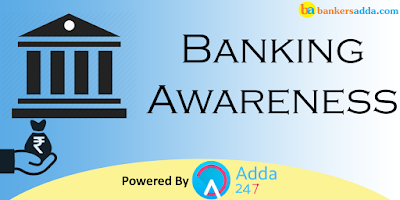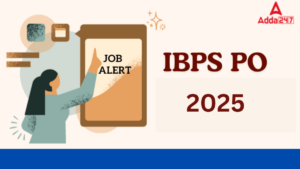Dear Readers,
Just a few days are left for RBI Grade-B Phase-1 Exam. It is time to pace up your preparation of Banking Awareness for RBI Grade-B Officers. These Banking questions will also help you in preparing for other upcoming banking recruitment examination.
Q1. Fiscal policy is concerned with which of the following?
(a) Public Revenue and Expenditure
(b) Issue of Currency
(c) Export Import
(d) Population Control
(e) Education for all
Q2. In which of the following types of banking, there is a direct execution of the transaction between a bank and its consumers?
(a) Retail Banking
(b) Universal Banking
(c) Virtual Banking
(d) Unit Banking
(e) None of the given options is true
Q3. Loans against the security of shares, debentures and bonds should not exceed the limit of Rupees ____________ per individual if the securities are held in physical form.
(a) two lakhs
(b) five lakhs
(c) ten lakhs
(d) fifteen lakhs
(e) twenty lakhs
Q4. In the case of failed ATM transactions, if the amount is not credited to customer’s account within 7 working days from the date of receipt of the complaint. Banks have to pay compensation at the rate of Rs.________ per day.
(a) 150
(b) 200
(c) 100
(d) 10
(e) 50
Q5. Which of the following is known as “Demat” account?
(a) Account in which shares are held in electronic form
(b) Account opened with zero balance
(c) Account allowed to be operated by guardian of minor
(d) Account operated by business correspondents in rural centres.
(e) None of the given options is true
Q6. The Aadhaar-Enabled Payment Systems (AEPS) is a bank led model that facilitates banking facilities by allowing transactions at Point of Sale through the Business Correspondent (BC) using the Aadhaar authentication number. Aadhaar enabled basic types of banking do not include-
(a) Balance Enquiry
(b) Cash Withdrawal
(c) Online Payment
(d) Cash Deposit
(e) Aadhaar to Aadhaar funds transfer
Q7. Loans against the security of shares, debentures and bonds should not exceed the limit of Rupees _______________ per individual if the securities are held in dematerialised form.
(a) ten lakhs
(b) five lakhs
(c) thirty lakhs
(d) fifty lakhs
(e) twenty lakhs
Q8. The process by which the central bank of a country controls the supply of money in the economy by exercising its control over interest rates in order to maintain price stability and achieve high economic growth is known as?
(a) Economic Policy
(b) Monetary Policy
(c) Fiscal Policy
(d) Credit Policy
(e) Budgetary Policy
Q9. Who amongst the following is the regulator in the financial system of the country?
(a) CERC
(b) SEBI
(c) CRISIL
(d) TRAN
(e) None of the given options is true
Q10. Bank Holidays are covered by which of the following?
(a) As per the order of the GOI
(b) As per the order of the IBA
(c) Negotiable Instruments Act
(d) RBI Act
(e) Banking Regulation Act 1949
Q11. What is the purpose of KYC in banking?
(a) It is used for customer identification
(b) It is used for increasing the CRR of banks
(c) It is used for money laundering
(d) It is used by the central bank to control liquidity
(e) Both (a) and (c)
Q12. Which of the following types of cards is free from credit risk?
(a) Credit card
(b) Debit Card
(c) Prepaid Cards
(d) Charge Cards
(e) Both (c) and (d)
Q13. FATF is an inter-governmental body established in __________ by the Ministers of its Member jurisdictions.
(a) 1999
(b) 1976
(c) 1982
(d) 1995
(e) 1989
Q14. Where is the headquarter of FATF?
(a) New York, USA
(b) Paris, France
(c) Geneva, Switzerland
(d) Italy, Rome
(e) Vienna, Austria
Q15. Headquarters of National Council of Applied Economic Research (NCAER) is located in ______
(a) Mumbai
(b) New Delhi
(c) Hyderabad
(d) Chennai
(e) Kolkata
You may also like to see:




 GA Capsule for SBI Clerk Mains 2025, Dow...
GA Capsule for SBI Clerk Mains 2025, Dow...
 The Hindu Review October 2022: Download ...
The Hindu Review October 2022: Download ...
 IBPS PO 2025 Notification Expected in Au...
IBPS PO 2025 Notification Expected in Au...





